Is every food parcel a nail in HS2's coffin?
- Published
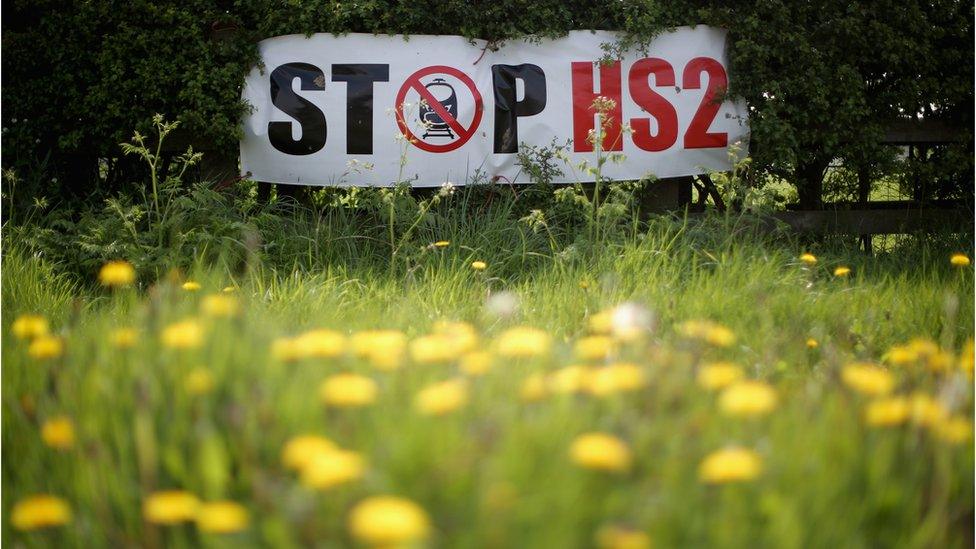
Tory MP Sir Bill Cash is convinced the final HS2 bill will go far beyond the £106bn estimate
HS2 QED? Not so fast!
Just two months ago the government seemed to have secured the future of High-Speed Rail.
But now our region's longest-serving MP is signalling his determination to renew his campaign for it to be axed after all.
Stone's Conservative MP Sir Bill Cash warns: "If the government wants to benefit the health service... it would be better to keep this kind of money in the accounts."
He is convinced the final bill will go far beyond the £106bn estimate which many consider shocking enough.
He reckons it's heading north like a high-speed train towards £200bn.
I decided to retrace a road trip I made just two months ago, when I set out to gauge reactions among local political leaders who had long been on opposite sides of the hard-fought HS2 debate.
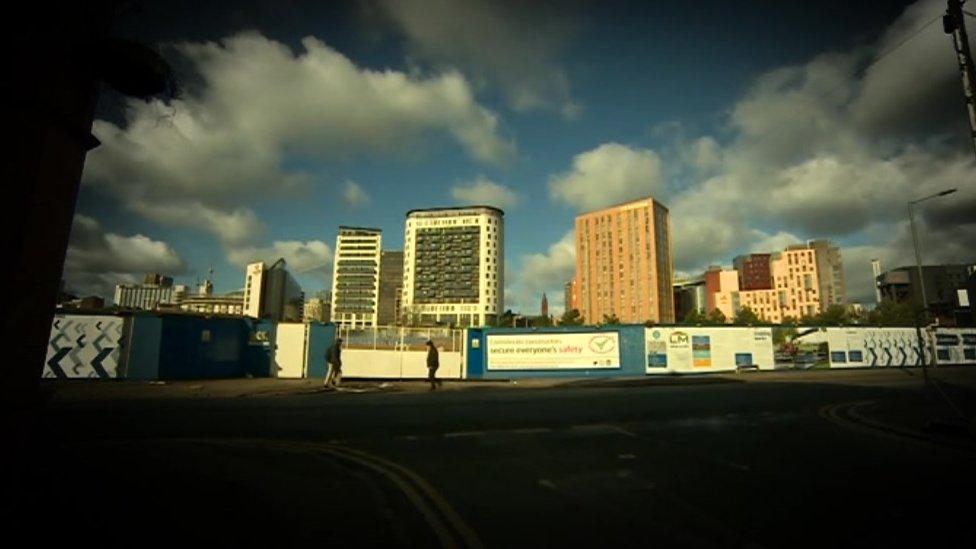
My road trip started in Birmingham, near the site of the city's planned HS2 terminus
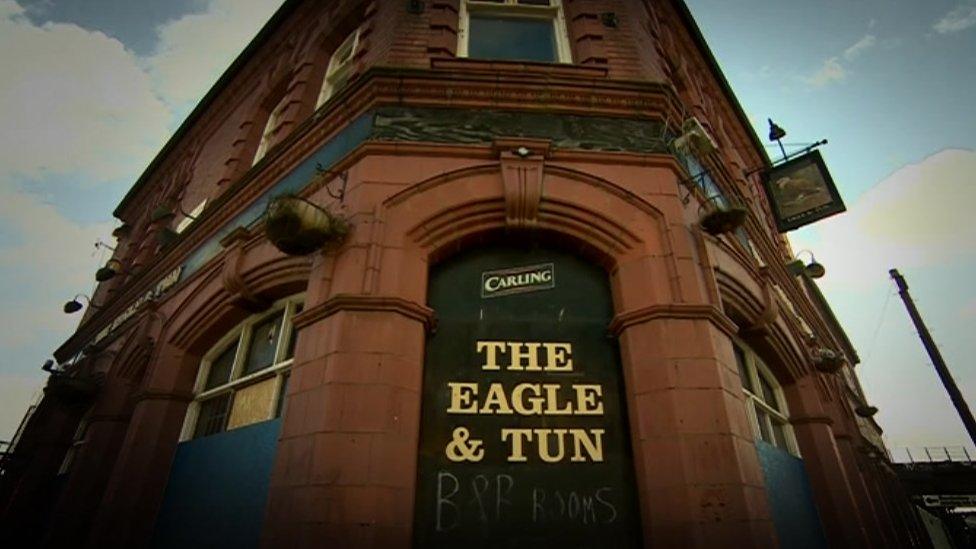
Musicians including Ed Sheeran have drunk at the Eagle & Tun
How did they view the issue now that it had been settled? Or so we thought.
I started out from the Eagle & Tun, a pub once famously a favourite haunt of pop legends including Ed Sheeran and UB40 but which now stands boarded up, derelict and awaiting demolition to make way for Birmingham's Curzon Street HS2 terminus.
I headed north towards Staffordshire where the county council had long opposed the line, not least because it would apparently be all pain and no gain for local communities when the line carves though 45 miles of the self-proclaimed "Creative County".
In the event, though, the council's Conservative leader Philip Atkins had now been won over by the promise of two connections on to the line which had confounded expectations by surviving the government's cost-cutting review.
Unexpected change
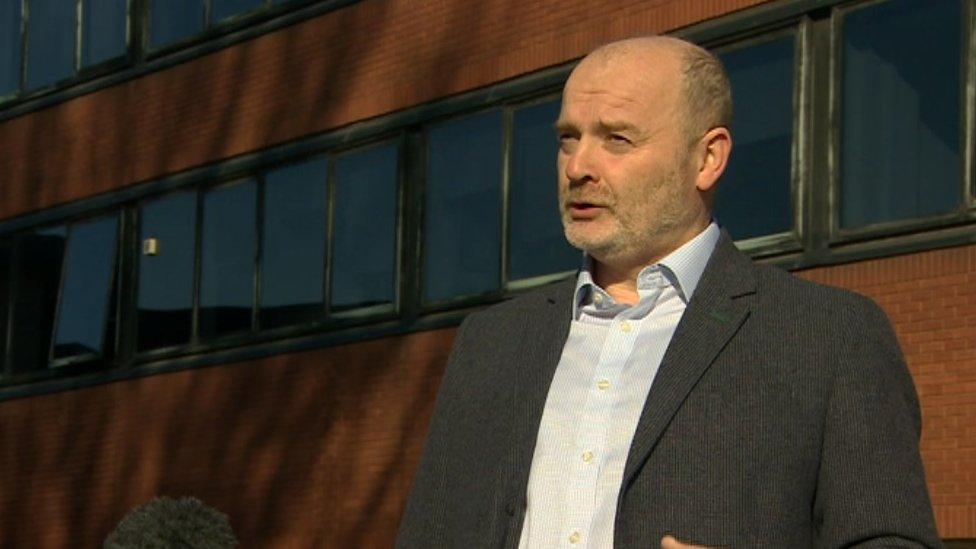
Stafford Borough Council's Conservative leader Patrick Farrington says his authority has fantastic links with community groups
Repeating that earlier journey north from Birmingham on the M6, I saw what a difference the "lock-down" is making.
At times all three carriageways were devoid of traffic as far as the eye could see.
And that was not the only big difference this time round.
Instead of the county council, my destination now was the headquarters next door of Stafford Borough Council.
In counties with two levels of local government, it is to the lower tier that the government is looking to take the lead in supporting the most vulnerable people who must be protected, or shielded from the risks posed by the virus.
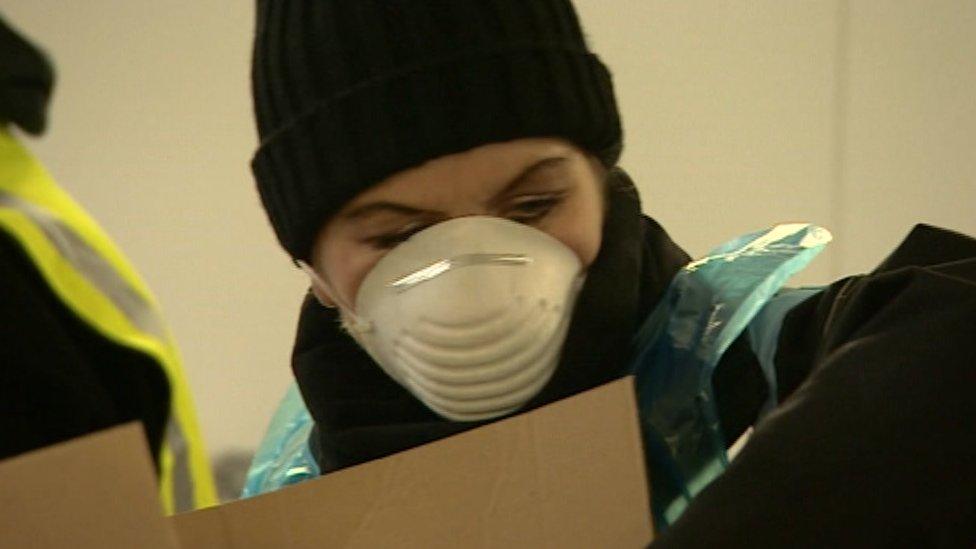
In Britain's biggest local authority, Birmingham, the food hub is on an epic scale
The borough's Conservative leader Patrick Farrington told me his authority had fantastic links with local community groups, charitable and voluntary organisations and was "proactively contacting" people to make sure everyone in need of help was receiving it: people self-isolating because of illness, others needing social care and others still dependent on food deliveries to their homes, irrespective of whether or not they could afford to pay for them.
Mr Farrington told me the costs of distributing food parcels free of charge were for another day.
He urged other council leaders to follow his example.
I saw for myself some of the army of volunteers who had enlisted in the town to pack food parcels in a hall stacked with fresh fruit, bread and all manner of high quality tinned and bottled products.
On top of this, dog walking, gardening and money advice services were on Stafford's shopping list as well.
Reprising my return journey south, I was heading towards the seven metropolitan councils who, in common with our unitary authorities in Stoke-on-Trent, Telford and Wrekin, Shropshire and Herefordshire, are responsible for the full set of local services.
In Britain's biggest local authority, Birmingham, the food hub is on an epic scale.
The council's catering business Cityserve is working flat out packing thousands of food parcels supported by the National Express bus company's accessible transport teams who have switched to making delivery runs.
The Labour administration's council's cabinet member for health and adult social care, Paulette Hamilton, told me I shouldn't be surprised the council was stepping up to the challenge so promptly.
A council which has had to endure more than its share of bad publicity over recent years is determined to prove it knows who and where its vulnerable people are and how to help them through the worst.
Day of Reckoning
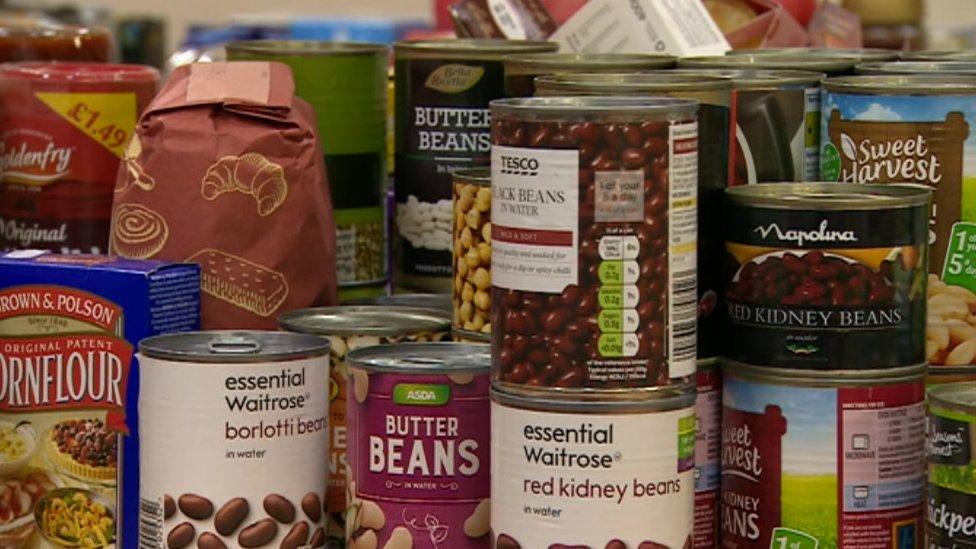
Piles of food are stacked, waiting to be packaged and delivered
Even financial hawks like the Cabinet Office Minister Michael Gove proclaim we must spend "whatever it takes" to help people through all this.
"Life comes first" he told Andrew Marr on BBC One last weekend.
My journey had certainly concentrated my mind on the most pressing issues of raw survival.
The help being handed out to those who need it most is absolutely priceless, literally beyond price. Incalculable.

A SIMPLE GUIDE: How do I protect myself?
AVOIDING CONTACT: The rules on self-isolation and exercise
LOOK-UP TOOL: Check cases in your area
MAPS AND CHARTS: Visual guide to the outbreak

But eventually ministers will have to do the sums and face up to the immense challenge of repairing the economic damage that their own "unprecedented intervention" has caused.
It follows that there will have to be a new day of reckoning for all those big-ticket services and projects.
And that could well include High Speed Rail, whatever ministers may have decided in February.
That was before the dawning of this "new normal".
There's an old saying in politics: "Never let a good crisis go to waste".
We can be sure Sir Bill Cash will not be the only opponent of HS2 biding their time.
